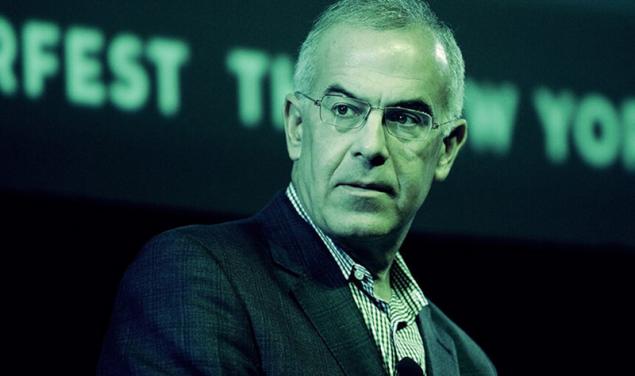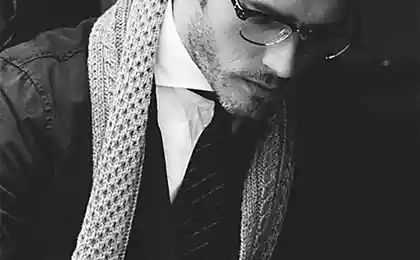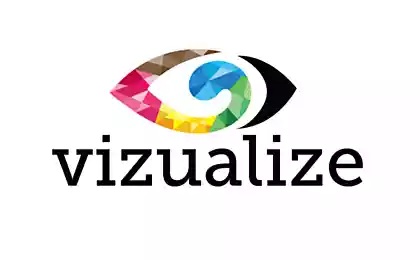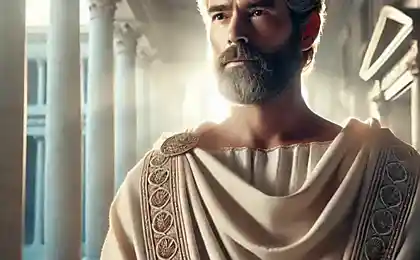678
David Brooks: Live for resume or Eulogy?
Well-known columnist for The New York Times and author of the terrific book "the Social animal" David Brooks, in his speech, "Living for resume or Eulogy for" describes the concept of two Adams thinker Joseph soloveitchik and examines two models of our relationship with the world.

Speaking in 2008 on the educational platform, TED, neuroanatomy Jill Boult Taylor noted that the hemispheres of our brain OBOSOBLENNOE live life: the right poluare completely absorbed in the moment, it lives in the here and now and is the bridge that connects us with the surrounding world, with nature, with people, while the left hemisphere thinks linearly and methodically with the help of language, it analyzes the past, planning the future, and provides us with a sense of "I", separating us from the world.
According to Taylor, in a selfish age of strife and war we need to pay more attention to the right hemisphere, to develop intuitive ways poznania peace and a sense of belonging to what is happening:
I'm Dr. Jill Boult Taylor: intellectual, neuroanatomy. Inside of me there are those in incarnation. What would you choose? What do you choose? And when? I think the more time we spend running chip deep inner peace of our right hemisphere, the more peace we bring into our world, and the more peaceful our planet becomes.
This mystical rhetoric might seem strange, if not for one thing: it flows from the mouth of a respected neurophysiologist who knows about the brain and even more (myself Taylor suffered a stroke, received an unprecedented opportunity for the study of the brain).
However, the idea seems to be hovering in the air. Not long ago, two personalities and two models of relations with the world have become the topic of "Living for resume or Eulogy to?" the columnist for The New York Times by David Brooks.
He is convinced that each of us has two beginnings: the power-hungry and success identity that we create for resume and personality, seeking unity with the world, of community and love, which is not a sin would be to devote a good Eulogy. Thinker Joseph soloveitchik has called these individuals "Adam I" and "Adam II". In his short poignant speech, Brooks describes the concept soloveitchik, describes these two personalities and asks: "Can we achieve harmony between these principles?".
Lately I've been thinking about the difference between the virtues of summary and virtues of the Eulogy. Virtues in the summary are the personal qualities that you exhibit on the labour market. The virtues of the panegyric, that is mentioned in the Eulogy, deeper. They show who you are deep down, how do you maintain relationships with anyone, whether you are a courageous, loving, responsible and consistent. Many of us, including me, would say that the virtues of the Eulogy is more important. But at least in my case, they do I think most of the time? The answer is no.
Brooks vybiral interesting approach considers a person as the main actor of the two genres to show the Gulf that exists between our forms, to make them convex leading features and close to every example (who has not written a CV?) to show that all of us long owned Adam I:
We live in a culture with the mentality of Adam I, inarticulate about Adam II.
However, the fact that we live for the summary, I noticed another Lebanese-American scientist, philosopher, statistician and essayist Nassim Nicholas Taleb in his reflections about antibibiotic Umberto Eco:
We tend to treat our knowledge as personal property which must be protected and preserved. This ornament, which allows us to advance in the hierarchy, to stand out from others. But the trend to focus on already known — it is human weakness that covers all of our mental activity. People do not go to walk with their entiretime, telling everyone what they have not learned and have not experienced (to tell it is the work of their competitors), though it would be quite superfluous.
Apparently, we do something wrong. But when it got to be too much our ego, feeling his omnipotence, and what to do with him now? David Brooks advises everyone to find their main internal weakness and to begin to deal with it:
Finally, here's how Reinhold Niebuhr summed up the struggle, a life lived full of Adam I and II: "Anything worthwhile is not achieved in one life, therefore we must be saved by hope. Nothing which is true or beautiful or good makes complete sense in any immediate context of history; therefore we must be saved by faith. Nothing, however virtuous, can be accomplished alone; therefore we must be saved by love. Virtue is not virtuous from the point of view of friend or foe as from our own perspective, so we have to save the last form of love is forgiveness".
So.published
N. In.Startseva: Obstetric aggression
You know the feeling of NOT...
P. S. And remember, only by changing their consumption — together we change the world! ©
Source: monocler.ru/devid-bruks-zhit-dlya-rezyume-ili-dlya-panegirika/

Speaking in 2008 on the educational platform, TED, neuroanatomy Jill Boult Taylor noted that the hemispheres of our brain OBOSOBLENNOE live life: the right poluare completely absorbed in the moment, it lives in the here and now and is the bridge that connects us with the surrounding world, with nature, with people, while the left hemisphere thinks linearly and methodically with the help of language, it analyzes the past, planning the future, and provides us with a sense of "I", separating us from the world.
According to Taylor, in a selfish age of strife and war we need to pay more attention to the right hemisphere, to develop intuitive ways poznania peace and a sense of belonging to what is happening:
I'm Dr. Jill Boult Taylor: intellectual, neuroanatomy. Inside of me there are those in incarnation. What would you choose? What do you choose? And when? I think the more time we spend running chip deep inner peace of our right hemisphere, the more peace we bring into our world, and the more peaceful our planet becomes.
This mystical rhetoric might seem strange, if not for one thing: it flows from the mouth of a respected neurophysiologist who knows about the brain and even more (myself Taylor suffered a stroke, received an unprecedented opportunity for the study of the brain).
However, the idea seems to be hovering in the air. Not long ago, two personalities and two models of relations with the world have become the topic of "Living for resume or Eulogy to?" the columnist for The New York Times by David Brooks.
He is convinced that each of us has two beginnings: the power-hungry and success identity that we create for resume and personality, seeking unity with the world, of community and love, which is not a sin would be to devote a good Eulogy. Thinker Joseph soloveitchik has called these individuals "Adam I" and "Adam II". In his short poignant speech, Brooks describes the concept soloveitchik, describes these two personalities and asks: "Can we achieve harmony between these principles?".
Lately I've been thinking about the difference between the virtues of summary and virtues of the Eulogy. Virtues in the summary are the personal qualities that you exhibit on the labour market. The virtues of the panegyric, that is mentioned in the Eulogy, deeper. They show who you are deep down, how do you maintain relationships with anyone, whether you are a courageous, loving, responsible and consistent. Many of us, including me, would say that the virtues of the Eulogy is more important. But at least in my case, they do I think most of the time? The answer is no.
Brooks vybiral interesting approach considers a person as the main actor of the two genres to show the Gulf that exists between our forms, to make them convex leading features and close to every example (who has not written a CV?) to show that all of us long owned Adam I:
We live in a culture with the mentality of Adam I, inarticulate about Adam II.
However, the fact that we live for the summary, I noticed another Lebanese-American scientist, philosopher, statistician and essayist Nassim Nicholas Taleb in his reflections about antibibiotic Umberto Eco:
We tend to treat our knowledge as personal property which must be protected and preserved. This ornament, which allows us to advance in the hierarchy, to stand out from others. But the trend to focus on already known — it is human weakness that covers all of our mental activity. People do not go to walk with their entiretime, telling everyone what they have not learned and have not experienced (to tell it is the work of their competitors), though it would be quite superfluous.
Apparently, we do something wrong. But when it got to be too much our ego, feeling his omnipotence, and what to do with him now? David Brooks advises everyone to find their main internal weakness and to begin to deal with it:
Finally, here's how Reinhold Niebuhr summed up the struggle, a life lived full of Adam I and II: "Anything worthwhile is not achieved in one life, therefore we must be saved by hope. Nothing which is true or beautiful or good makes complete sense in any immediate context of history; therefore we must be saved by faith. Nothing, however virtuous, can be accomplished alone; therefore we must be saved by love. Virtue is not virtuous from the point of view of friend or foe as from our own perspective, so we have to save the last form of love is forgiveness".
So.published
N. In.Startseva: Obstetric aggression
You know the feeling of NOT...
P. S. And remember, only by changing their consumption — together we change the world! ©
Source: monocler.ru/devid-bruks-zhit-dlya-rezyume-ili-dlya-panegirika/






















